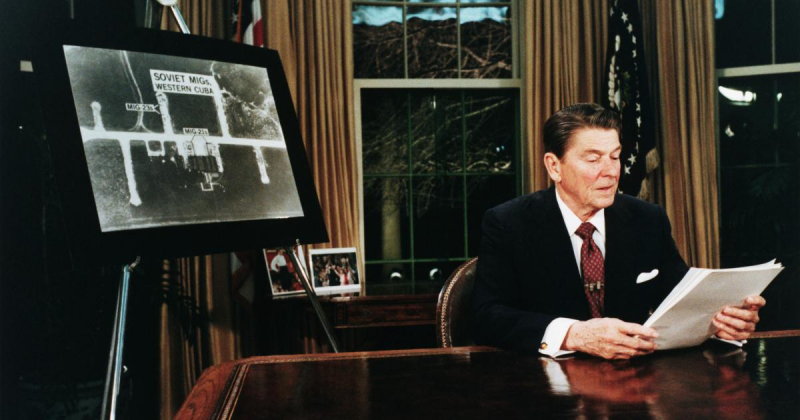Strategic Defense Initiative
The Strategic Defense Initiative (SDI), started by Ronald Reagan, was viewed as controversial by many. Reagan's policy was to defend the United States against nuclear weapons by intercepting and destroying incoming missiles because he believed that it was preferable "to save lives than to avenge them." Some thought that this was a pretext for beginning an economic conflict with the Soviet Union. The United States undoubtedly gained a competitive edge in the area of missile defense, though.
Mutually assured destruction (MAD) is a military tactic and national security policy that states that if one side is attacked with nuclear weapons, the other side will respond with full force, potentially escalating the conflict and annihilating both sides. Both sides employed MAD to prevent direct conflict during the Cold War. Reagan was an outspoken opponent of MAD. He unveiled the Strategic Defense Initiative (SDI) in 1983, which sought to defend the US from nuclear ballistic missile attacks by intercepting and destroying the assailants' missiles.
Because it threatened the "assured annihilation" necessary for MAD, it was viewed as risky. Some believe that Reagan's SDI initiative was an attempt to instigate an economic conflict by escalating a defensive arms race against the already fragile Soviet economy. The Soviet Union was under pressure from SDI to develop its own anti-ballistic missile system. Despite the fact that SDI was never completely completed, the research and technology it produced helped shape some of the anti-ballistic missile systems in use today and offered the US a competitive edge in the missile defense market.











